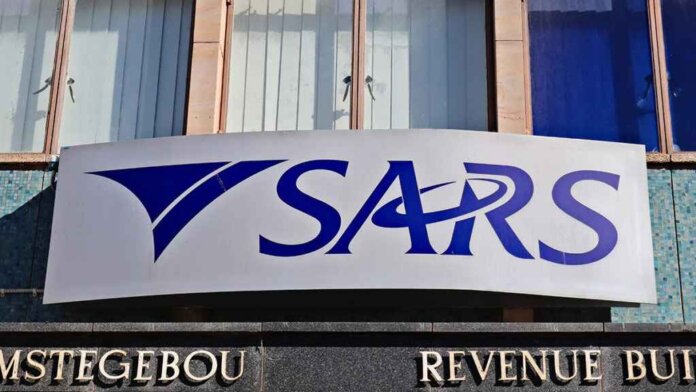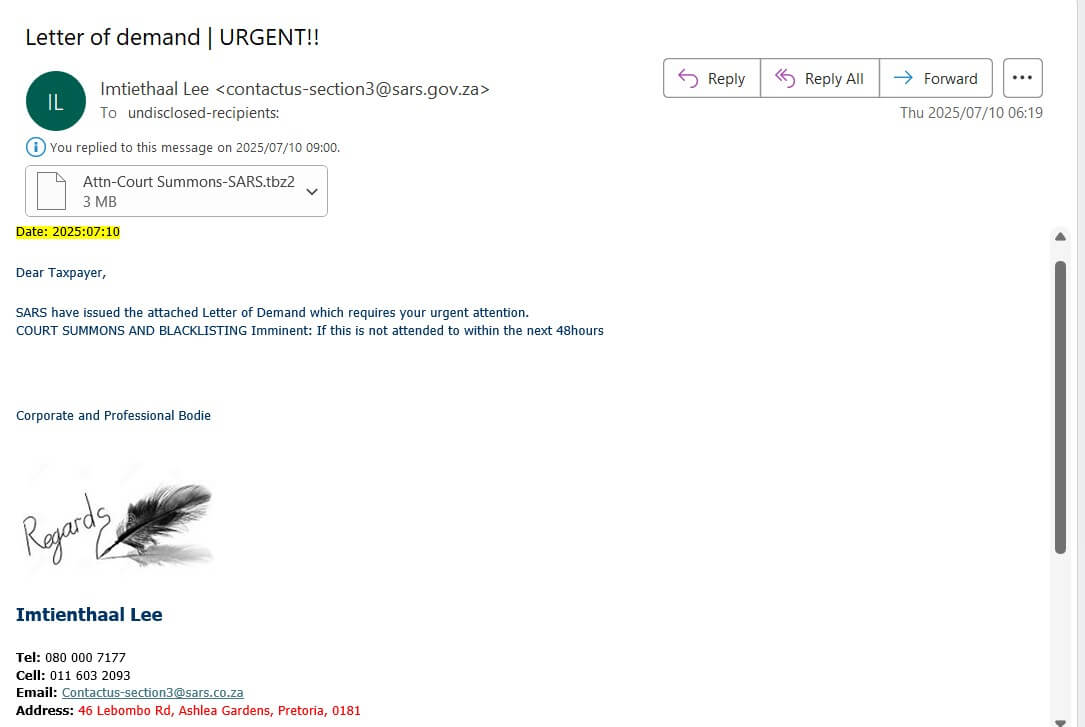- Fraudulent SARS Email Scams Resurface: South Africans are being targeted again by fake emails impersonating SARS, warning recipients with threats of court summons and blacklisting to induce panic.
- Red Flags in Scam Emails: Common warning signs include generic greetings, fake sender addresses, malicious attachments, and threatening language designed to create urgency.
- Official SARS Communications Protocol: SARS does not issue court notices via email and warns the public against responding or opening suspicious attachments to prevent cybercrime.
South Africans are once again being targeted by a fraudulent email scam that impersonates the South African Revenue Service (SARS). The message, disguised as a “Letter of Demand” from a SARS agent named Imtienthaal Lee, urges taxpayers to urgently open a suspicious file or risk “court summons and blacklisting.”
The email, seen by Pondoland Times, includes the following red flags:
- A generic greeting like “Dear Taxpayer”
- A fake sender address:
contactus-section3@sars.gov.za - An attachment titled “Attn-Court Summons-SARS.tbz2”, which may contain malware or spyware
- Threatening language meant to cause panic, like “requires your urgent attention” and “48 hours to comply”
What You Should Know
SARS has not issued any recent court summons notices via email and continues to warn the public about cybercriminals mimicking their communication style.
“These emails are not from SARS. Do not open the attachment, and do not respond,” the tax agency previously said in a public scam alert.
If you receive such an email:
- Do not download the attachment
- Do not click on any links
- Report it to:
phishing@sars.gov.za - Mark the email as spam or phishing in your inbox
How to Stay Safe
- SARS will never send legal threats or demand immediate action through email without prior official communication.
- Always check if the email address ends in
@sars.gov.zaand verify suspicious requests through the SARS Contact Centre: 0800 00 7277
Pondoland Times urges all citizens to remain alert, especially with cyber fraud on the rise. These scammers prey on fear and urgency, and even a single click could compromise your personal data.









